How to use WhatsApp Business API for tracking customer interactions and analytics
Case Studies Conversational Leadership
Apurva Sharma
Published on 20 Feb 2023Highlights
WhatsApp Business API is a powerful tool that enables businesses to engage with their customers more effectively and efficiently. One of the key benefits of using the WhatsApp Business API is the ability to track customer interactions and analytics. In this blog post, we will explore how businesses can use the WhatsApp Business API to track customer interactions and analytics and leverage this data to improve their customer engagement strategies.
The WhatsApp Business API is a communication platform that allows businesses to send messages to their customers on WhatsApp. It enables businesses to automate customer interactions, send notifications, and provide customer support through WhatsApp.
The API provides features such as message templates, quick replies, and chatbots to automate customer support. It also offers metrics to track message delivery, response rate, and response time. The WhatsApp Business API is available to authorized and approved businesses, and is subject to strict policies and guidelines to ensure that the platform is used responsibly and effectively.
How to use WhatsApp Business API for tracking customer interactions?
Using the WhatsApp Business API, businesses can track customer interactions by
- Sending personalized messages: Businesses can send personalized messages to their customers, which can include text, images, videos, and documents. By tracking the responses to these messages, businesses can understand how their customers are engaging with their brand and adjust their customer engagement strategy accordingly.
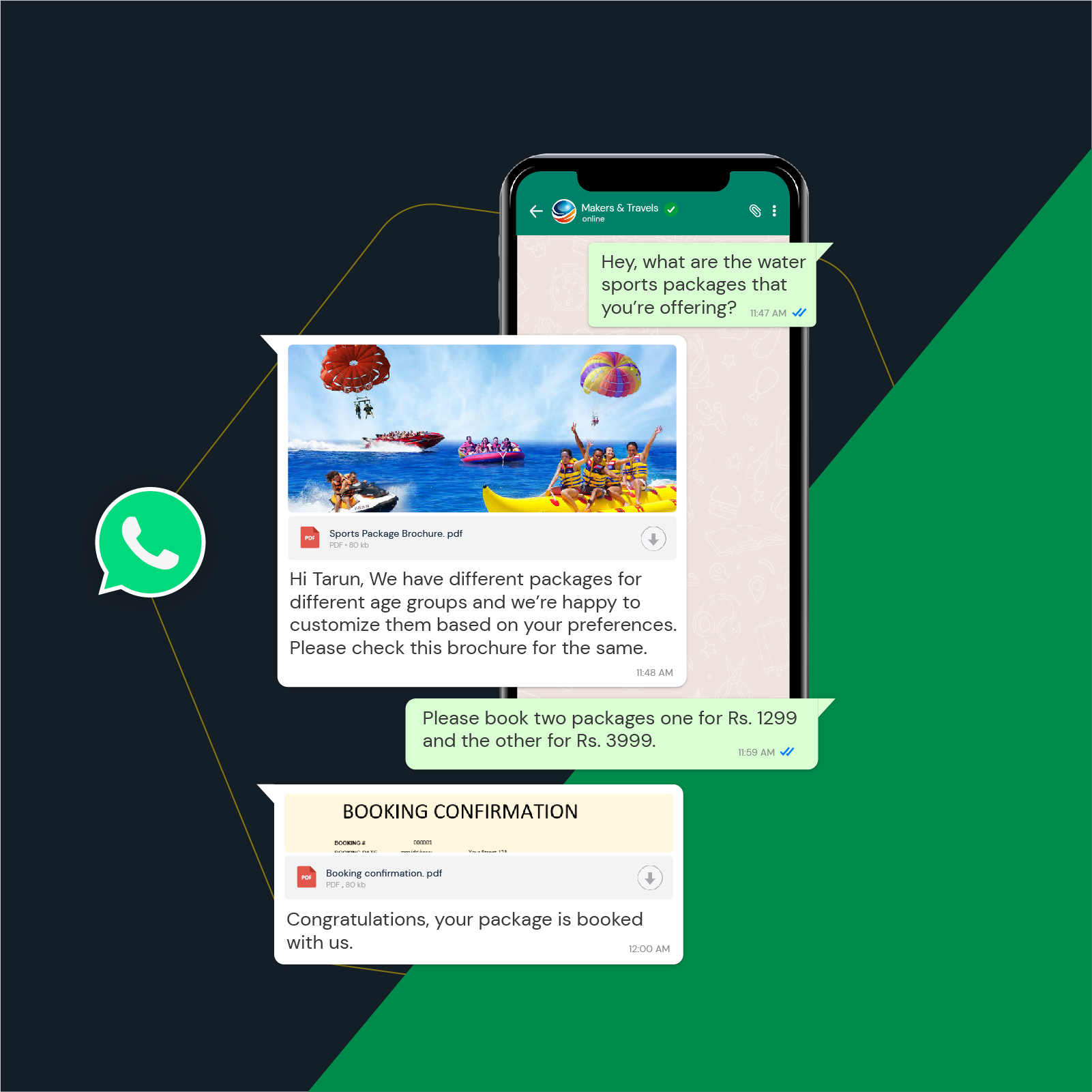
- Using message templates: The WhatsApp Business API provides message templates that businesses can use to send pre-defined messages to their customers. By tracking the usage of these message templates, businesses can understand which messages are most effective in engaging their customers.
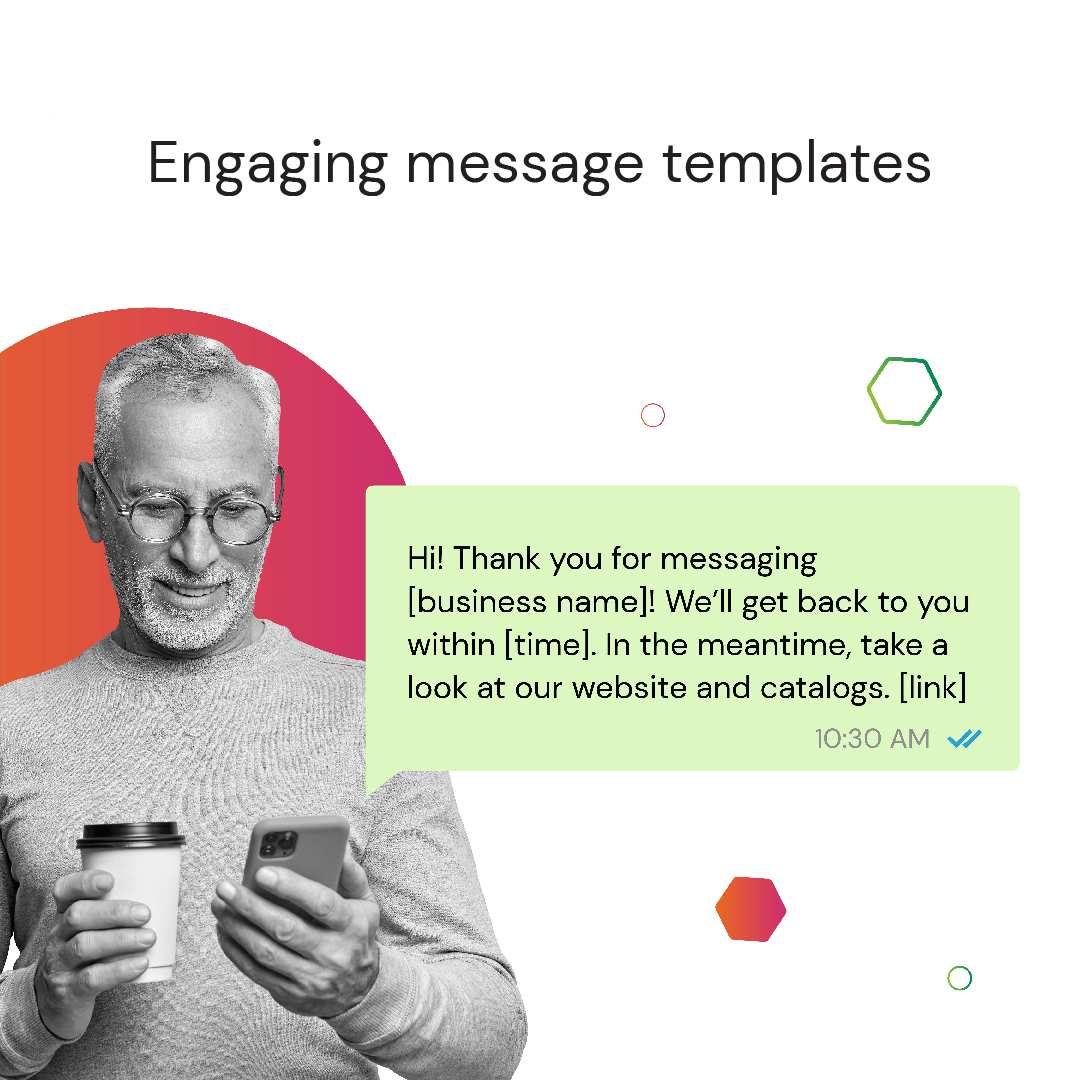
- Providing customer support: Businesses can use the WhatsApp Business API to provide customer support to their customers. By tracking the types of questions and issues that customers are asking, businesses can identify common pain points and improve their products or services accordingly.
- Leveraging chatbots: Businesses can use chatbots with the WhatsApp Business API to automate customer interactions and provide instant responses to their customers. By tracking the usage of these chatbots, businesses can understand how their customers are engaging with the bot and adjust the bot’s responses to better meet customer needs.
Why do analytics matter for your business?
Analytics are essential in WhatsApp Business API because they provide insights into the performance and effectiveness of your messaging strategy. Without analytics, it can be difficult to understand how your audience is interacting with your business and whether your messaging is achieving its intended goals.
Analyzing WhatsApp interactions with customers will reveal:
- Your customers’ happiness (and how to resolve it if they are not)
- The speed at which your team responds to messages
- Your team’s ability to resolve issues quickly
- How can the most frequently discussed topics be automated (and if so, how)?
- Your team’s daily message volume (and if extra staff is needed)
Here are some key reasons why analytics are essential for WhatsApp Business API:
- Measure success: Analytics allows you to track key performance indicators (KPIs) and measure the success of your messaging campaigns. This can help you understand what is working well and what needs improvement.
- Optimize messaging: With analytics, you can identify which messages are resonating with your audience and which are not. This information can help you optimize your messaging and create more effective campaigns.
- Improve customer experience: By analyzing user behavior, you can identify pain points and areas for improvement in your customer experience. This can help you create a better user experience and improve customer satisfaction.
- Make data-driven decisions: Analytics provides you with data-driven insights that can help you make informed decisions about your messaging strategy. With analytics, you can test different approaches and make changes based on what is working best.
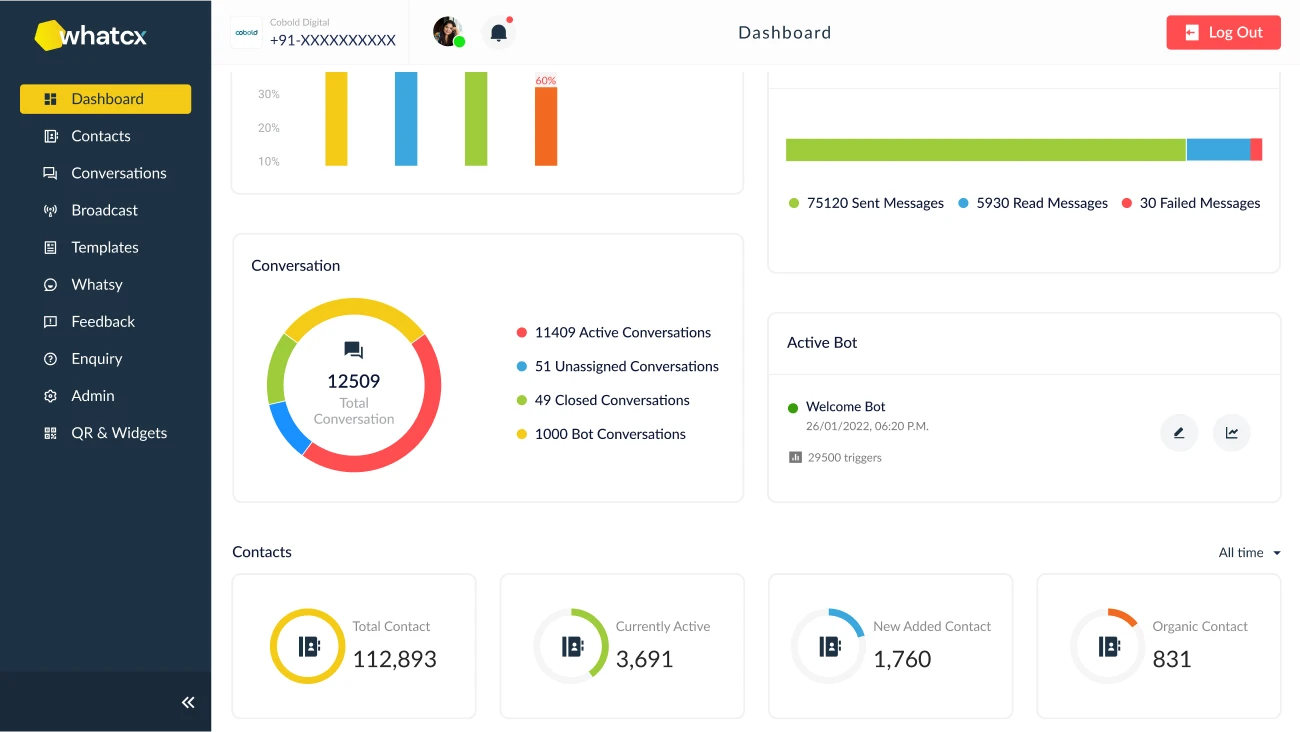
- Identify opportunities: Analytics can help you identify new opportunities for engagement and growth. By understanding how your audience is interacting with your business, you can find new ways to connect with them and drive business growth.
Overall, analytics are essential in WhatsApp Business API because they provide valuable insights that can help you improve your messaging strategy, better understand your audience, and drive business growth.
How to use WhatsApp Business API for analytics?
Using the WhatsApp Business API, businesses can leverage analytics to gain insights into customer behavior, preferences, and engagement. Some of the ways in which businesses can use WhatsApp Business API for analytics include
- Tracking message delivery: The WhatsApp Business API allows businesses to track the delivery status of their messages. By tracking the delivery status of messages, businesses can understand the response rates of their customers and adjust their engagement strategy accordingly.
- Analyzing message open rates: Businesses can track the number of messages that have been opened by their customers. By analyzing message open rates, businesses can understand which messages are most effective in engaging their customers.
- Tracking customer engagement: Businesses can track the number of messages sent and received by their customers. By tracking customer engagement, businesses can understand the level of interest that their customers have in their brand and adjust their engagement strategy accordingly.
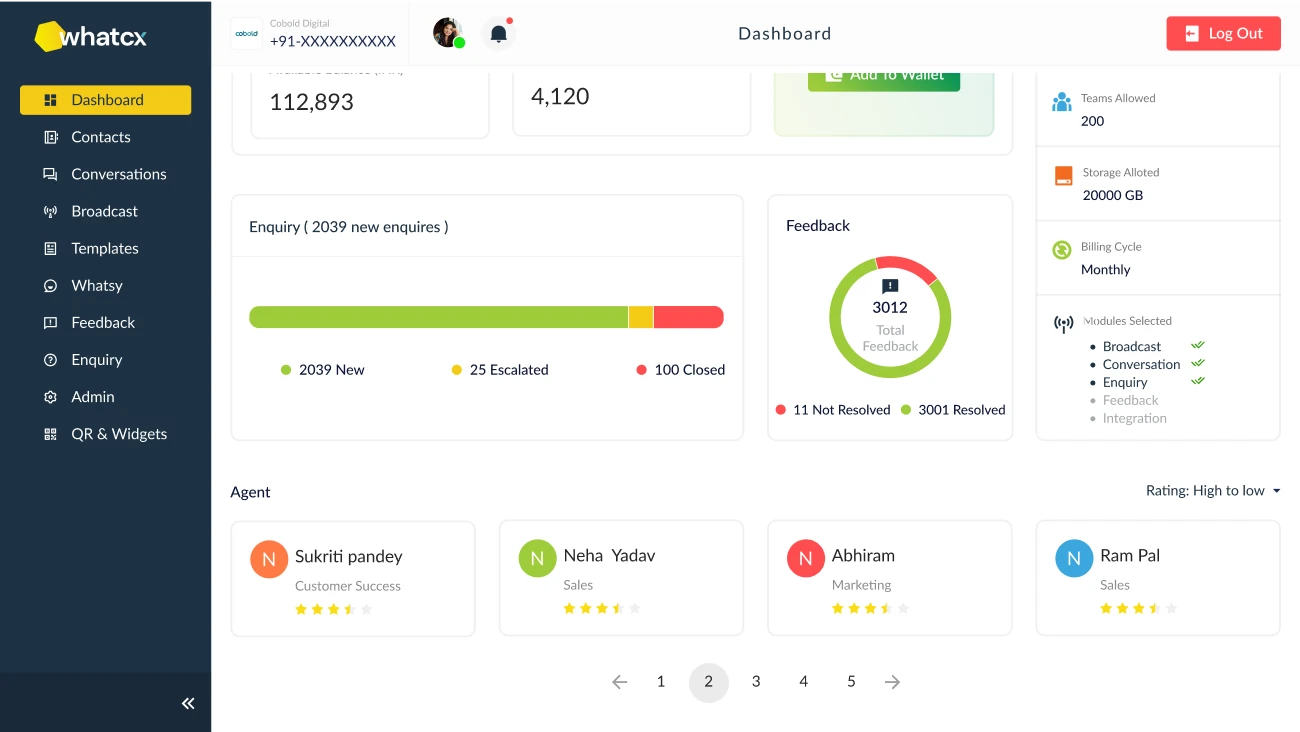
- Measuring customer satisfaction: The WhatsApp Business API allows businesses to send surveys and ask for feedback from their customers. By tracking customer satisfaction, businesses can identify areas for improvement and adjust their products or services accordingly.
Advantages of analyzing customer interactions via WhatsApp
Analyzing customer interactions via WhatsApp can provide businesses with numerous benefits, including:
- Improved customer engagement: Analyzing customer interactions can help businesses understand what their customers are looking for, what they like, and what they don’t like. With this information, businesses can improve their engagement strategies, such as by sending personalized messages and offers that meet customer needs and ultimately improve customer satisfaction.
- Increased customer retention: Understanding customer behavior and preferences can help businesses identify at-risk customers, allowing them to take proactive measures to prevent customer churn. This can include offering personalized promotions or addressing customer concerns in real time to prevent them from leaving.
- Enhanced customer service: WhatsApp provides a direct communication channel between customers and businesses, which allows for quick and efficient customer service. By analyzing customer interactions, businesses can identify common customer issues and respond more quickly, leading to increased customer satisfaction.
- Better targeting of marketing efforts: By analyzing customer interactions, businesses can understand what types of messages and offers are resonating with their target audience. This allows for more targeted marketing efforts that are more likely to generate engagement and conversions.
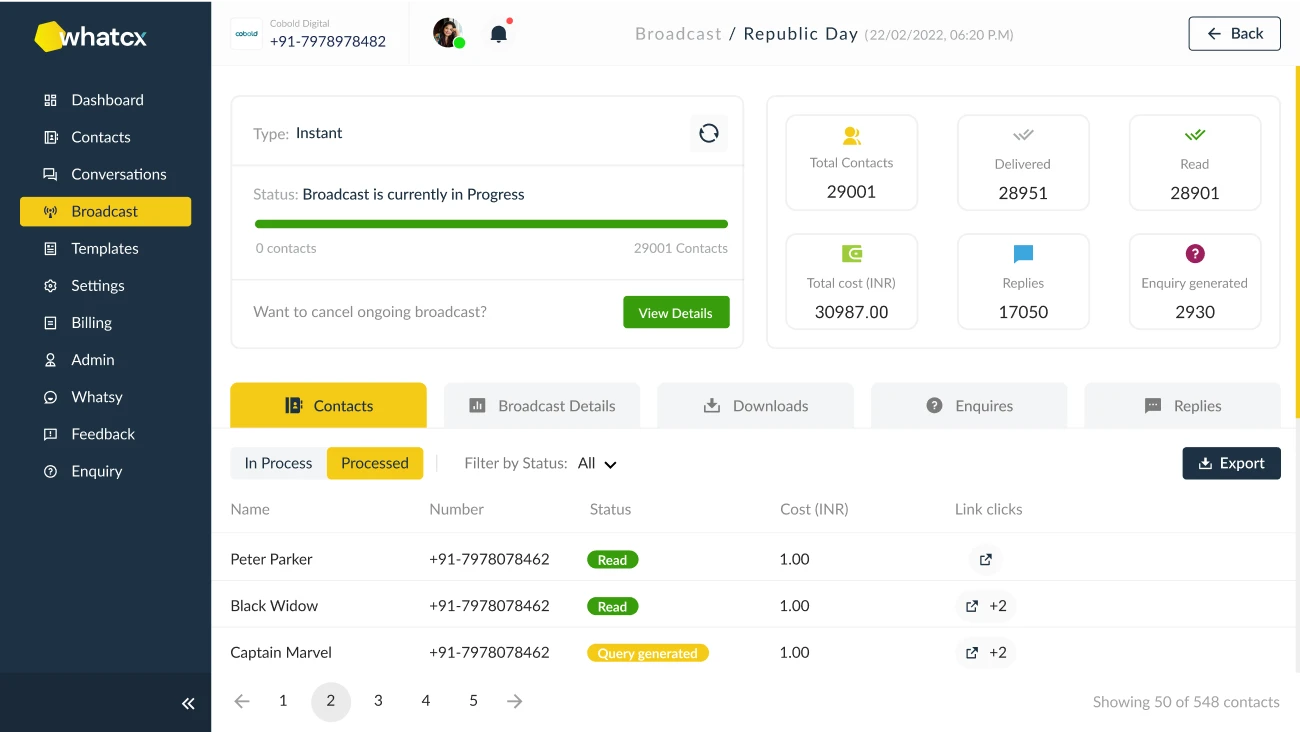
- Improved product or service offerings: Analyzing customer interactions can help businesses identify common pain points, preferences, and areas for improvement. This can inform product or service development, allowing businesses to better meet the needs of their customers and stay ahead of the competition.
- Enhanced brand reputation: Providing a positive customer experience through WhatsApp can help build brand reputation and loyalty. Analyzing customer interactions can help businesses ensure they are meeting customer expectations and continuously improving their offerings, which in turn can lead to positive word-of-mouth and increased customer acquisition.
Analyzing customer interactions via WhatsApp can provide businesses with valuable insights into customer behavior, preferences, and engagement. By leveraging this data, businesses can improve their customer engagement strategies, increase customer retention, provide better customer service, target their marketing efforts more effectively, improve their product or service offerings, and enhance their brand reputation.
Metrics to monitor with the WhatsApp API analytics tool
There are several key metrics to monitor when using the WhatsApp Business API, depending on your specific use case and goals. Here are some examples:
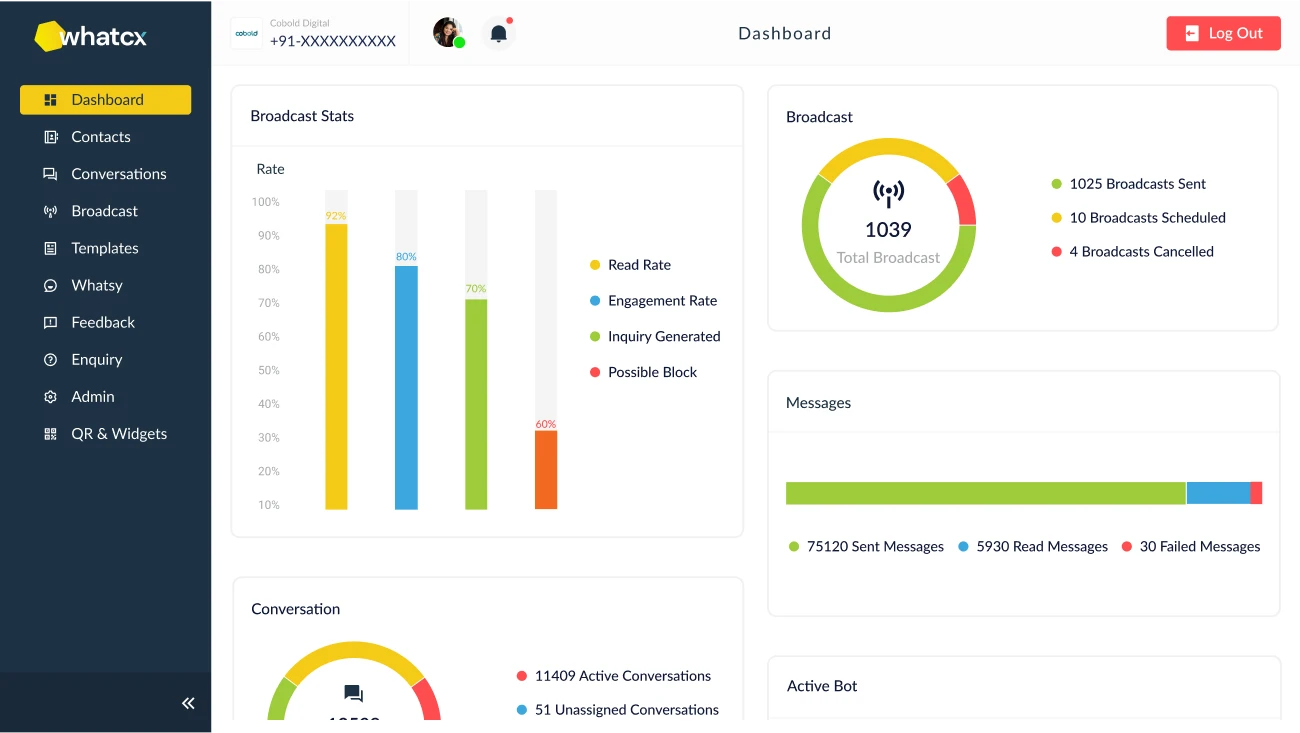
- Message delivery rate: This metric measures the percentage of messages that are successfully delivered to their intended recipients. A low delivery rate may indicate issues with your phone number verification or message content.
- Response rate: This metric measures the percentage of messages that receive a response from the recipient. A high response rate indicates that your messages are engaging and relevant to your audience.
- Message open rate: This metric measures the percentage of messages that are opened by the recipient. A high open rate indicates that your messages are getting the attention of your audience.
- Session length: This metric measures the length of time that a user interacts with your business during a single session. A longer session length indicates that your content is engaging and valuable to the user.
- Opt-out rate: This metric measures the percentage of users who opt out of receiving messages from your business. A high opt-out rate may indicate that your messages are not relevant or that you are sending too many messages.
- Conversion rate: This metric measures the percentage of users who take a desired action, such as making a purchase or filling out a form. This can help you evaluate the effectiveness of your messaging and identify areas for improvement.
Overall, it’s important to monitor these metrics to ensure that your WhatsApp Business API strategy is effective and provides value to your audience.
Choosing the right WhatsApp business analytics tool
When it comes to choosing a WhatsApp Business analytics tool, there are several factors to consider. However, to effectively measure and improve the performance of your WhatsApp business account, you need to use the right analytics tool.
Choosing the right WhatsApp business analytics tool can help you gain valuable insights into your customer behavior, track your key performance indicators (KPIs), and make data-driven decisions to improve your business strategies. In this section, we will discuss the important factors to consider when selecting a WhatsApp business analytics tool and highlight some popular options in the market.
- Features: Look for an analytics tool that provides the features you need to meet your specific business goals. This might include things like conversation tagging, message templates, or chatbot integration.
- Integrations: Consider whether the analytics tool can integrate with your existing systems and tools, such as your CRM or marketing automation platform.
- Ease of use: Look for an analytics tool that is easy to use and provides a user-friendly interface. This can help ensure that your team can quickly and easily access and analyze your data.
- Customization: Look for an analytics tool that allows you to customize your reports and dashboards to meet your specific needs. This can help ensure that you can track the KPIs that are most important to your business.
- Data security: Consider whether the analytics tool provides robust security features to protect your customer data.
- Customer support: Look for an analytics tool that provides good customer support and resources to help you get the most out of the tool.
- Price: Finally, consider the price of the analytics tool and whether it fits within your budget. Some tools may be more expensive than others but may provide additional features or value that make them worth the investment.
Ultimately, the right WhatsApp Business analytics tool for your business will depend on your specific needs and goals. By considering the factors listed above, you can choose an analytics tool that provides the features, integrations, ease of use, customization, data security, customer support, and price that is most important to your business.
Measure Well To Grow Faster
The WhatsApp Business API provides businesses with a powerful tool for tracking customer interactions and analytics. By leveraging this data, businesses can gain insights into customer behavior, preferences, and engagement and adjust their engagement strategy accordingly. With the right approach, businesses can use the WhatsApp Business API to build stronger relationships with their customers, improve their products or services, and grow their business.
Register for DashCX to learn more about tracking and analytics. DashCX allows you to immediately check the status of the messages and access a complete broadcast report immediately after sending the message. You can check the enquiry generated, read, delivered, and sent rates to target campaigns effectively.
Our WhatsApp Business Solution Provider can connect you to the WhatsApp Business API in less than a minute. As a WhatsApp Business user, you will enjoy easy-to-use features such as transparent pricing, automation options (such as rules and chatbots), and the ability to track all key metrics through a dashboard.
Make your WhatsApp conversations faster, automatic, and more effective with your team.
Recent Blogs

25-08-2023
Streamlining Bulk Messaging: A Guide to Utilizing WhatsApp Cloud API & DashCX in South Africa

25-08-2023
Unified Messaging Made Easy: Utilizing WhatsApp Cloud API & DashCX Mobile App for Seamless Communication in South Africa

25-08-2023
Elevating Business Growth: Harnessing the Potential of WhatsApp Cloud API with DashCX for South African Entrepreneurs

30-03-2023
How to Create an Effective Lead Generation Campaign on WhatsApp
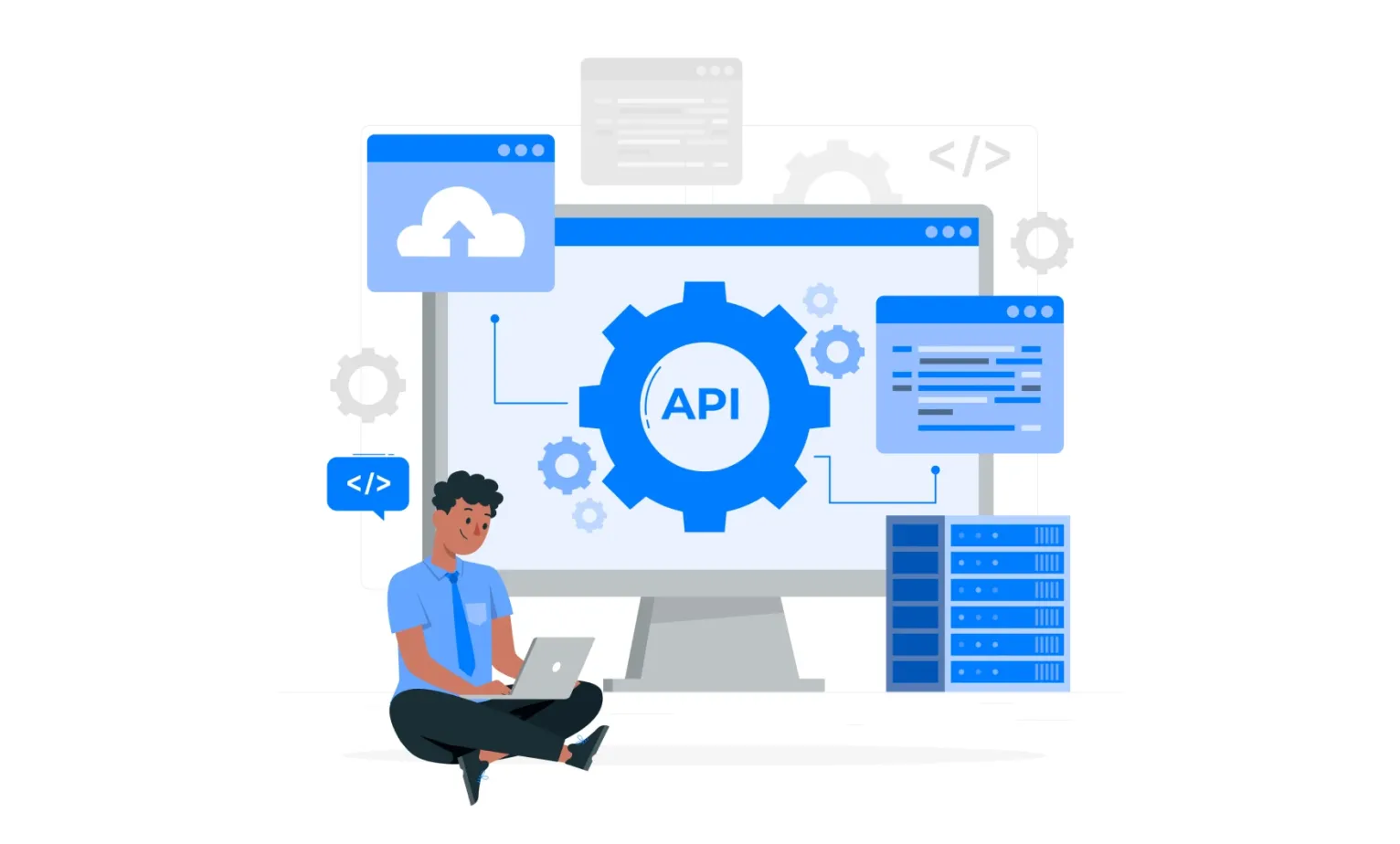
28-03-2023
What are the best WhatsApp Business API Providers? Find Out Now!

22-03-2023
How Stock broker companies use WhatsApp API to give insights into the portfolio to their ‘Customers’

19-03-2023
Impact of Automation in WhatsApp API Across Industries: A Closer Look

13-03-2023
How can the manufacturing sector leverage automation in WhatsApp Business API to help achieve their business goals

10-03-2023